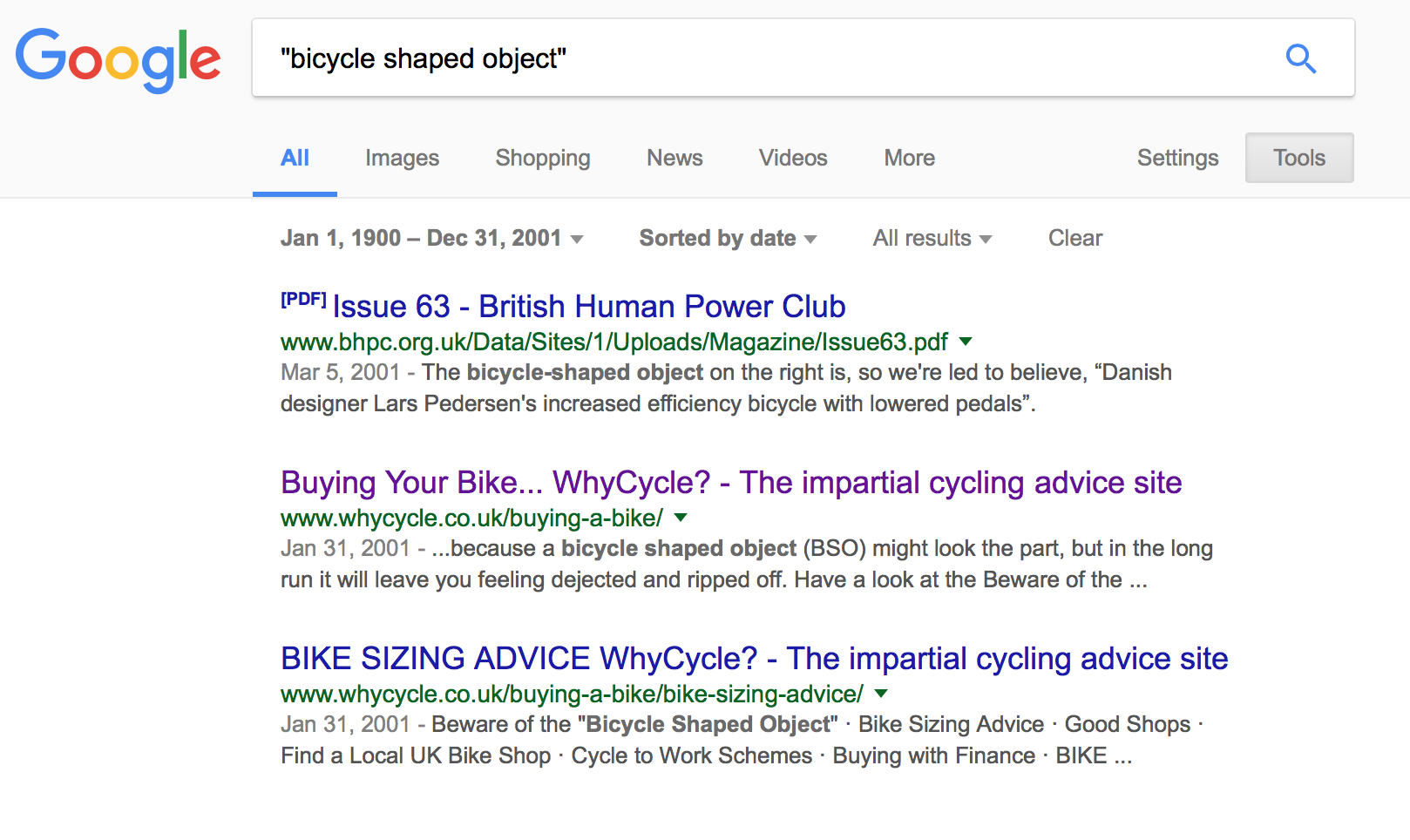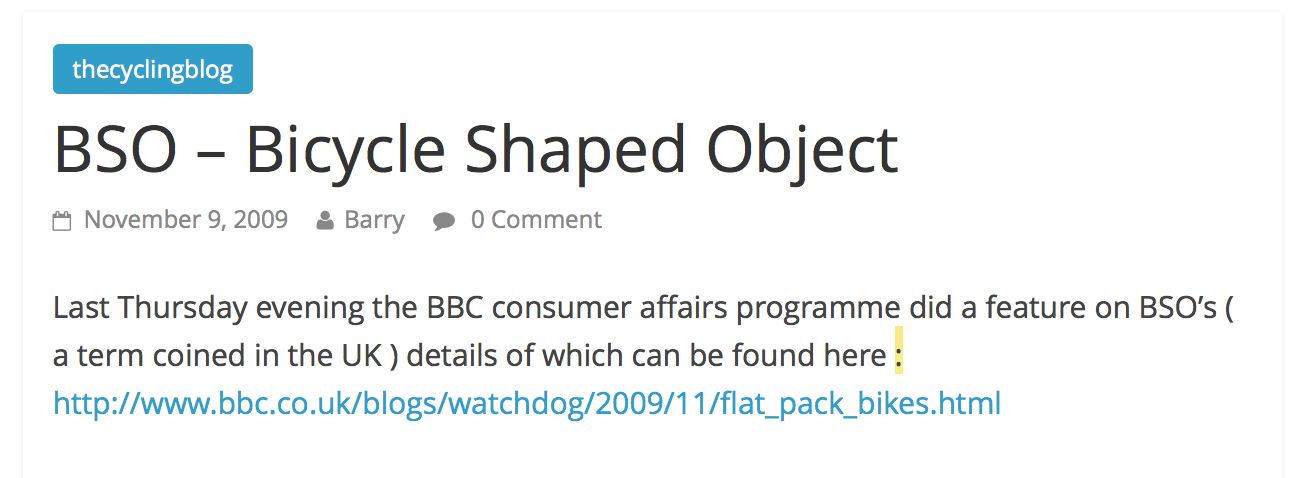Who is the first person who came up with the appellation, "Bicycle Shaped Object" (BSO) referring to very inexpensive and very poorly built bicycles sold through mass-market department stores?
Bonus question: And is it international? We use BSO in America and I've heard b.se members from Australia and New Zealand use it, but is it used in the UK and Canada? What do people in France or Japan or other countries call BSOs?
If the bonus question makes this question too broad then I'll withdraw the bonus and make it a separate question.



BSO site:sheldonbrown.comdoes return hits, but they're music-related)